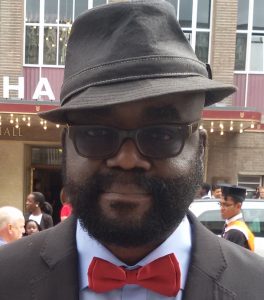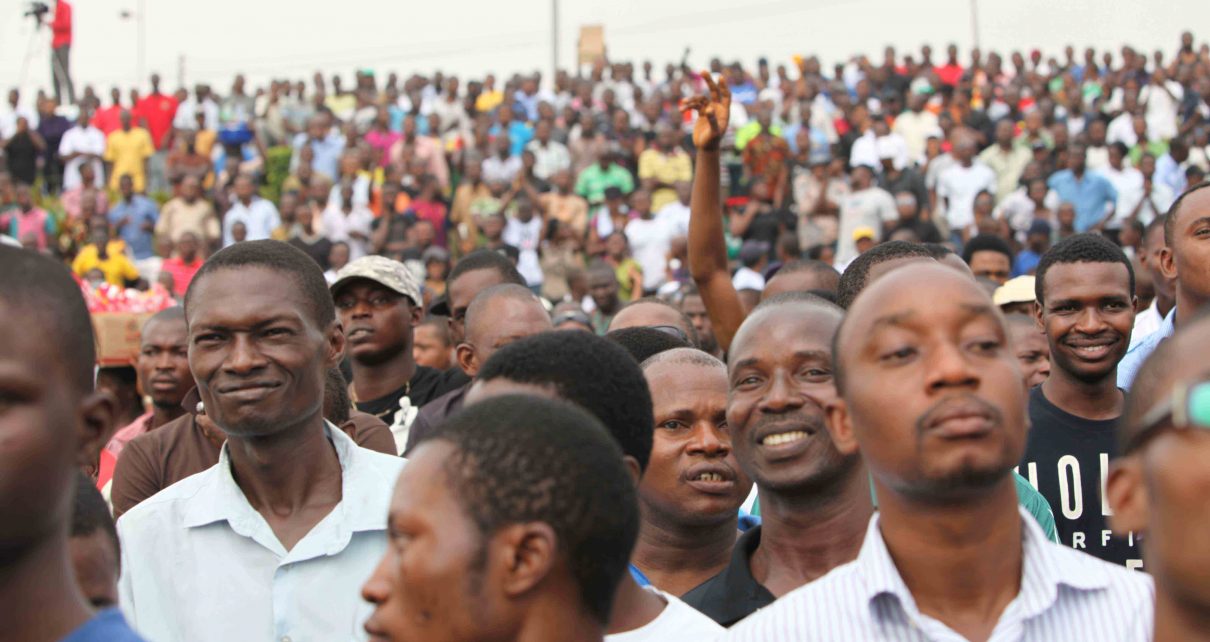
wole.olaoye@gmail.com
THE CIVIC SPACE IS shrinking by the day as my countrymen and women contend for the soul of the nation. Nigeria is pregnant. Veteran political midwives predict a long and painful labour. But they do not foresee a stillbirth as happened in 1993 under the watchful eyes of one former student of the redoubtable Eme Awa; his name was Humphrey Nwosu, the midwife of Nigeria’s first universally accepted, free and fair federal election.
The baby was born healthy but was strangled at birth. What manner of medic would monitor and nurture a pregnancy to term only to carry out infanticide in plain sight? Those who were not at the receiving end of the horror rationalised the crime. Better to send fledgling dust back to ancient dust.
We shall be back to the political labour room on the 30th anniversary of that crime, in 2023. And, as you can see, the usual suspects are doing their damndest to cut the umbilical cord of amity and sow the kind of hate that will turn midwives to undertakers.
It’s some comfort that we have, so far, survived them all: Gentlemen officers bitten by the messianic bug; rash pseudo-revolutionaries; anointees of the old order; dribblers of the truth, killers of our collective joy; Beelzebub’s second-in-command; the tent-bearer of the Year of Return; the pseudo democrat; the sacerdotal ogbanje who re-etched morality into the lexicon; the jolly good fellow; the messiah in desperate need of salvation …
We may yet survive for many more years. We will have a place to stand if, as Malcolm X counselled, we replace “I” with “We” so that even our “illness” becomes “wellness”.
However, we have found ourselves in this toxic environment where dialogue has become old-fashioned and fairness has been redefined to mean I, Me and Myself. Increasingly, the parts that make up this great piece of God’s estate are being torn asunder, bit by bit. Those who parrot the mantra of indivisibility are beginning to realise that although they don’t want to leave the country, the country is leaving them.
The other day, as their contribution to the national debate on the way forward, governors of our southern states agreed on some resolutions, including a recommendation that the presidency of Nigeria should be rotated between the North and the South. The kind of vicious negative response that greeted their announcement was indicative of our level of fractiousness. Some self-appointed spokesmen for the North (with the notable exception of the Northern Elders’ Forum) even said it was an insult while others interpreted the governors’ resolution as a threat and an attempt to blackmail.
If we cannot even discuss how the present union can be strengthened to make it more enduring, do we have any hope in hell that mere daydreams about indissolubility will ensure that the country remains one? Are some sections of the country required to take permission from others before daring to think?
Players in the public space need to watch their utterances lest they cause what they dread to overtake them. Has anyone bothered to think about the implication of our current dysfunction for future relations between children from various parts of the country?
Professor Jibrin Ibrahim, scholar-activist and newspaper columnist, recently beamed his expert lenses on Nigeria’s problem.
“Part of the problem today,” says Ibrahim, “is that the discussion in homes, offices, bars, religious gatherings, the mass media, social media, professional associations and all other fora in Nigeria today, is that there is a real and imminent threat to the corporate existence of Nigeria. In addition, there is an on-going rapid slide into anarchy, precipitated by the most serious collapse in security provisioning in our country, which is confronted by an almost complete lack of leadership or governance response to a multipronged crisis…”
In spite of the many conspiracy theories trending on social media, notes Jibrin, “There is no effective counter-narrative from the government to create hope….”
We have been groping in several wildernesses, if the facts released by StatiSense, a data analysis firm, are anything to go by. Within the first half of this year, we recorded 32 deaths and 17 successful kidnapping incidents per day. Misfortune has no tribe. The grim reaper has been reaping a bountiful harvest across the board. Within six months in 2021, Borno State lost 1,137 souls; Zamfara, 862; Kaduna, 715, Benue, 449; Niger, 407; Ebonyi, 210; Katsina, 164; Imo, 153; Kebbi, 144; Yobe, 137; Oyo, 114 and Anambra, 109.
A regional overview of officially reported cases of kidnapping in the half year shows that the North, with 2,557 reported cases, is a fertile haven for kidnappers while Southern Nigeria accounts for 386.
One would have thought that our security challenges were daunting enough to make us sit up. But, no! It’s almost as if insecurity has been woven into the national fabric as a natural part of our waking and sleeping moments.
Existential issues such as security and justice are the things that set social media agog on a regular basis. Many of our compatriots have been asking: Do we have separate laws for different parts of the country? Are all citizens equal before the law? Do we have a common understanding of basic concepts like right and wrong?
Since the re-arrest of Nnamdi Kanu, citizen-journalists have been wondering if the same military/security blitzkrieg will now be unleashed on Boko Haram and their comrades in crime, euphemistically called ‘bandits’ and ‘armed herdsmen’. They wonder, too, what became of the case of Hima Aboubakar, the Niger national declared wanted by the EFCC for defrauding the Nigerian military to the tune of $394 million, £9.9m and N369m. The EFCC had alleged that Aboubakar, the Chief Executive Officer of Societe D`Equipment Internationaux (SEI), received the funds for the purchase of equipment for the Nigerian military and that, “Investigations have revealed discrepancies in the supply of the equipment.”
Aside from the fraud and the amounts involved, not a few people are wondering how we fritter away our riches and conspire with complete strangers to dupe our country. Niger is not Russia or France or America. What esoteric qualifications did the Nigerien citizen possess to be entrusted with that volume of contract — that a Nigerian contractor doesn’t have? Is it conceivable that a foreigner from a ‘lesser’ country will be entrusted with a military contract in any serious country?
Even as we continue to tackle the issues that divide us, we must continue to stress that human beings are the same all over the world. Socialisation and environmental factors may be different but a human being is a human being. There is no fundamental difference between one human being from Maiduguri or Kano, and another from Ijebu-Ode or Onitsha. The factors that incubate hate between one man and another, therefore, can be traced outside his humanity. Disparate people can live together peacefully as equals if there is the will.
In this increasingly constricting space in which questions are viewed with utmost suspicion and the bug of the single narrative infests the land, I take journalistic notice of the befuddlement of one Citizen Saleh Mohammed who recently highlighted some fat puzzles of social media:
“You have four refineries with a refining capacity of 450,000 barrels per day. You abandoned them to rot. Niger Republic is a smaller country with a refining capacity of 20,000 barrels per day. You abandoned your own and went to embrace Niger Republic. You signed an MoU of $2b to transport your own crude from your country via pipelines, to refine in Niger Republic, so you can buy the refined products. You have the resources to run pipelines from Niger Delta to supply crude oil to the Niger Republic, but you lack the resources to maintain the existing refineries….”
Are you befuddled too? If you ask me, who will I ask?
My plea: instead of regressing into prehistory and narrowing the public space, let’s start troubling Boko Haram and the other ‘haramists’ like killer herdsmen, bandits and kidnappers.
- Wole Olaoye is a public relations practitioner and a public affairs commentator and can be reached at wole.olaoye@gmail.com


